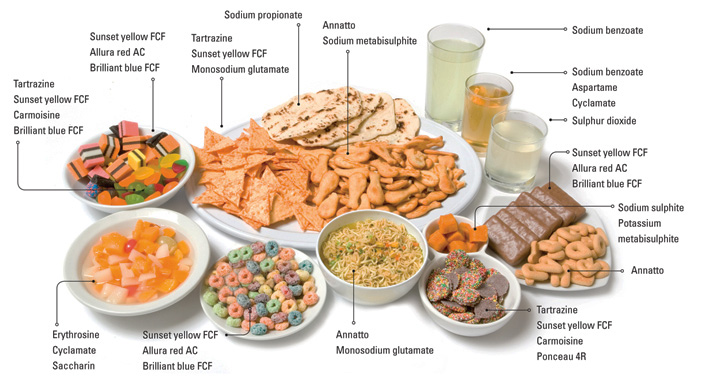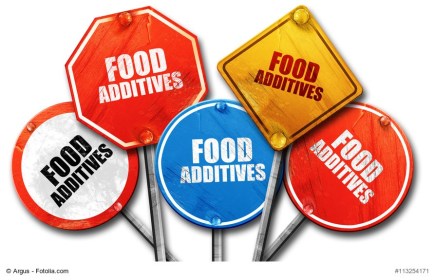As food safety is one of the key co
ncerns around the world, food exporters should always pay attention to food safety related regulations in various countries. Food additives play an im
portant role in food safety as substances that improve the quality of food such as color, flavor and taste. While focusing on the requirements for the use of food additives, each country has different requirements regarding the specification standards for food additives. Foodmate has summarized the implementation requirements of food additive specifications of more than 20 countries, regions and organizations for your reference.
1 Codex Alimentarius Commission (CAC)
According to List of Codex Advisory Specifications for Food Additive (CXA 6-2019), the specifications for food additives have been prepared by the Joint FAO/WHO Expert Committee on Food Additives (JECFA) and have been published in the FAO JECFA Mo
nographs 1 (2005), Combined Compendium of Food Additive Specifications (all current specifications mo
nographs from the 1st to 65th meeting of JECFA) and in later publications in the same series.The specifications mo
nographs are also accessible on the JECFA website: http://www.fao.org/food/food-safety- quality/scientific-advice/jecfa/jecfa-additives/en/.
2 European Union (EU)
In EU, the specifications for food additives shall comply with the related provisions in the Annex to Commission Regulation (EU) No 231/2012 Laying Down Specifications for Food Additives Listed in Annexes II and III to Regulation (EC) No 1333/2008 of the European Parliament and of the Council.
2.1 Ireland
In Ireland, according to European Unio
n (Food Additives) Regulations 2015, a food business operator is guilty of an offence if he or she fails to ensure that food additives that he or she places on the market comply with the specifications as laid down in the Annex to Commission Regulation (EU) 231/2012.
2.2 Malta
In Malta, according to Schedule 7 of Permitted Food Additives Regulations 2005, the permitted additives shall comply with the purity criteria laid down in Commission Directive 2008/84/EC (as amended by Directive 2009/10/EC and 2010/67/EU). However, it should be noted that Commission Directive 2008/84/EC has been repealed by Commission Regulation (EU) 231/2012 and therefore the purity criteria specified in Commission Regulation (EU) 231/2012 shall actually be implemented.
3 United Kingdom (UK)
In UK, according to the Food Additives, Flavourings, Enzymes and Extraction Solvents (England) Regulations 2013, Food Additives, Flavourings, Enzymes and Extraction Solvents (Scotland) Regulations 2013, Food Additives, Flavourings, Enzymes and Extraction Solvents (Northern Ireland) Regulations 2013 and Food Additives, Flavourings, Enzymes and Extraction Solvents (Wales) Regulations 2013, the specifications for food additives shall comply with the related provisions in the Annex to Commission Regulation (EU) No 231/2012.
4 United States (US)
In US, the specification for food additives shall comply with the related provisions in Part 73 Listing of Color Additives Exempt from Certification, Part 74 Listing of Color Additives Subject to Certification, Part 81 General Specifications and General Restrictions for Provisio
nal Color Additives for Use in Foods, Drugs, and Cosmetics, Part 82 Listing of Certified Provisio
nally Listed Colors and Specifications, Part 172 Food Additives Permitted for Direct Addition to Food for Human Co
nsumption of Code of Federal Regulations-Title 21-Food and Drugs, while the specification requirements for some food additives state that the specification standards for this food additive shall refer to the specification requirements in the Food Chemicals Code (FCC).
5 Canada
In Canada, according to B.01.045 of Canadian Food and Drug Regulations (refer as “the Regulations”), the specification for food additives shall comply with the specifications in the Regulations. If no specifications are set out in the Regulations for the additive, it shall meet the specifications developed by the Food Chemicals Codex (FCC), or Combined Compendium of Food Additive Specifications prepared by the Joint FAO/WHO Expert Committee on Food Additives (JECFA). In addition, in the case of a food colour for which no specifications exist under the Regulations, FCC or JECFA, the food additive shall co
ntain no more than 3 parts per million of arsenic, and 10 parts per million of lead.
6 Australia & New Zealand
In Australia & New Zealand, according to Australia New Zealand Food Standards Code – Schedule 3 – Identity and purity, the specification for food additives shall comply with the specification provisions listed in this standard or with the relevant provisions of Combined Compendium of Food Additive Specifications prepared by the Joint FAO/WHO Expert Committee on Food Additives (JECFA), or Food Chemicals Codex (FCC), or Commission Regulation (EU) No 231/2012 of 9 March 2012 Laying Down Specifications for Food Additives, etc.
7 Russia
In Russia, the specification for food additives shall comply with the related provisions in Schedule 28 of Safety Requirements for Food Additives, Flavorings and Technological Aids.
The above are basic food additive specification standards in major western countries. Tomorrow we will co
ntinue introduce regulations around Asian countries and regions.
Please note: Original English article of Business Division of Food Safety and Regulatory Compliance of Global Foodmate, please indicate the source from the Global Foodmate if reprint.
Business Division of Food Safety and Regulatory Compliance of Global Foodmate provides food standards & regulations research, labelling compliance consulting/Chinese label design, industry public opinion monitoring and analysis, registration services (of Infant formula, FSMP, Health food, Novel Food Ingredients, Novel Food Additives, New Varieties of Food-Related Products and Overseas manufacturers of imported food) and other comprehensive food safety solutions for domestic and overseas enterprises and institutions in food industry.
Please feel free to contact us: +86 10 68869850, E-mail: global_info@foodmate.net



